SUMMARY
This is AI generated summarization, which may have errors. For context, always refer to the full article.
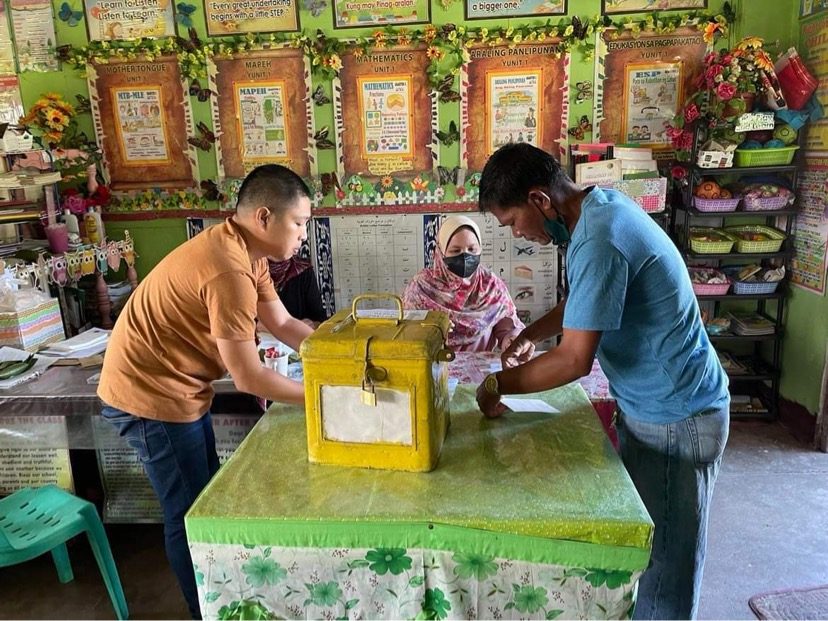
GENERAL SANTOS CITY, Philippines – The interfaith group that had called for the postponement of the Maguindanao plebiscite has questioned claims about a high voter turnout during the just-held political exercise, saying it documented many irregularities that day.
The group Interfaith for Peace and Clean Elections (IM4PEACE) said in a statement on Thursday, September 22, that the “actual people’s participation [during the plebiscite] can hardly support a high voter turnout.”
The Commission on Elections (Comelec) said voter turnout during the plebiscite was 86.93%, the second highest in a province-wide plebiscite in the country.
Comelec data showed that 706,558 voted for the split, and only 5,209 rejected it.
The Maguindanao plebiscite held on September 17 was fully manual – from the voting process, to the counting of ballots, to the canvassing of results.
The result, according to Comelec Chairman George Garcia, showed that Maguindanao’s voters “trust the process so much.”
The September 17 plebiscite resulted in the ratification of a 2021 law that split the province into two – Maguindanao del Sur and Maguindanao del Norte.
But IM4PEACE questioned Comelec’s claim, saying many Maguindanao voters were disenfranchised.
IM4PEACE co-coordinator Goldy Omelio said disenfranchisement of voters has long been a common occurrence in Maguindanao during political exercises.
“When you reach the precinct, you either find out that someone already voted using your name or you are no longer on the list,” said Omelio.
On plebiscite day, Omelio said, IM4PEACE fielded 72 volunteers in 26 villages in the towns of Datu Odin Sinsuat, Ampatuan, Kabuntalan, Datu Blah Sinsuat, Upi, and South Upi.
What the volunteers saw were irregularities such as the situation where voters were allegedly allowed to vote several times in Sultan Kudarat town, she said.
In the towns of Kabuntalan, barangay officials were allowed to fill out numerous ballots, Omelio alleged.
She said the volunteers also reported that in the towns of Datu Odin Sinsuat, Upi, and South Upi, plebiscite committees allowed voters to cast ballots on behalf of their family members, relatives, and even neighbors.
Omelia said voters in Datu Blah Sinsuat town told IM4PEACE volunteers that they were unable to vote because other people already cast ballots on their behalf.
She said volunteers saw a different situation on the ground than what the Comelec claimed to have happened on plebiscite day.
The group said voters came in trickles because many did not even know there was a plebiscite.
IM4PEACE called on the government to look into the alleged irregularities and put in place measures because it could happen in future political exercises. – Rappler.com
Add a comment
How does this make you feel?





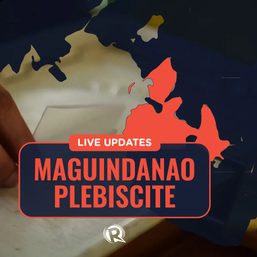
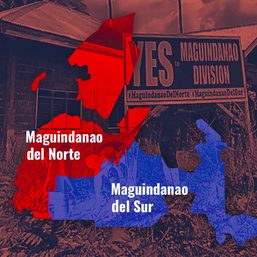
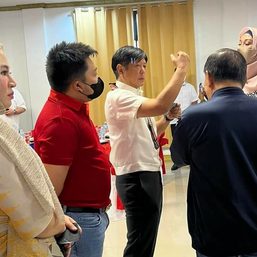
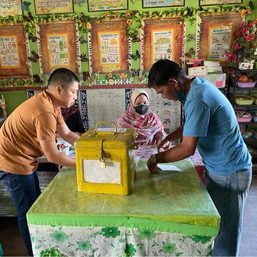
There are no comments yet. Add your comment to start the conversation.